Are you navigating the complexities of child visitation arrangements? Crafting a clear and thoughtful letter can pave the way for a smoother process and foster better communication. In this article, we'll provide you with a comprehensive template to propose a visitation schedule that prioritizes your child's well-being and your co-parenting relationship. So, let's dive in and uncover the essential elements of an effective visitation proposal!
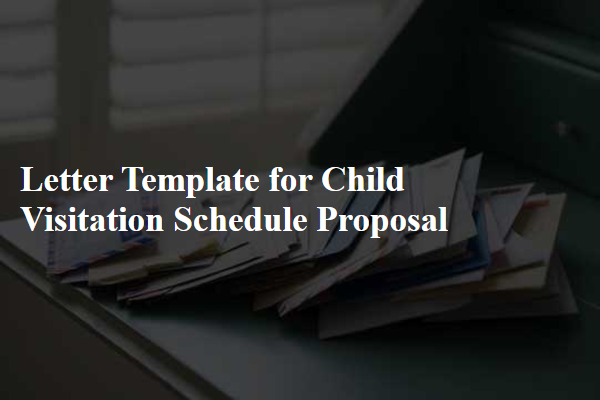
Schedule and Timing
Creating a structured child visitation schedule is crucial for ensuring stability and consistency in the child's routine. The proposed schedule includes specific days of the week and times to facilitate smooth exchanges between parents. For instance, weekends might include Friday evening to Sunday evening custody, providing ample quality time. Midweek visits could occur on Wednesday afternoons, allowing the child to maintain connections with both parents. Notably, the designated locations for exchanges, such as the local park or the parent's home, should be safe and convenient for the child. Incorporating school holidays into the schedule further ensures that special occasions, like birthdays and family events, are reserved for both parents to share memorable moments with their child. Flexibility, such as accommodating changes in work schedules or travel plans, can promote a cooperative atmosphere between parents, ultimately benefiting the child's well-being.
Child's Best Interest
A well-structured child visitation schedule can significantly enhance a child's emotional and developmental well-being. When parents prioritize the child's best interest, they ensure a balanced and nurturing environment. For instance, a proposed visitation schedule could allocate alternating weekends (Friday to Sunday) and a midweek visit every Wednesday from 4 PM to 8 PM, promoting stability and consistency. Locations for visitation should be neutral, such as parks or community centers, fostering a peaceful atmosphere. Additionally, including holidays and special occasions, like birthdays or school events, ensures the child maintains strong relationships with both parents. Communication tools, such as a shared parenting app, can facilitate coordination while encouraging parental collaboration. Prioritizing the child's needs leads to a supportive and loving environment, crucial for their growth.
Communication and Cooperation
A well-structured child visitation schedule enhances communication and cooperation between parents, ensuring a stable environment for children. Clear visitation times, such as weekends and holidays, allow for planned activities, fostering quality family interactions. Involving children in conversations regarding their preferences for time spent with each parent can further strengthen relationships. Regular updates through shared calendars or apps, like Google Calendar, can improve coordination and reduce potential conflicts, allowing both parents to remain informed about the children's activities and well-being. Establishing a dialogue about changes or concerns promotes a collaborative approach, emphasizing the child's needs and best interests.
Flexibility and Adaptability
A proposed child visitation schedule should prioritize flexibility and adaptability, accommodating the unique needs of both the child and parents. Ideally, visitation arrangements can be adjusted based on significant events, such as holidays, school vacations, or important family gatherings in cities like New York or Los Angeles. For instance, during summer break, extended overnight visits can provide meaningful bonding time, while during school weeks, shorter visits after school can align better with the child's routine. Regular communication between parents is essential to discuss any necessary adjustments to the visitation schedule, ensuring the child's emotional well-being remains the focus. Utilizing digital calendars can facilitate tracking of visitation days and provide quick updates as needed, promoting a cooperative co-parenting environment.
Legal and Custodial Considerations
A structured child visitation schedule proposal is essential for ensuring the emotional and physical well-being of children following parental separation. Proposed schedules often consider key factors such as the child's age, educational commitments, and extracurricular activities. Recommended visitation frequency may include weekends, holidays, and school breaks, aiming for equitable time distribution between parents. Legal frameworks, including statutes from family law jurisdictions such as the Uniform Child Custody Jurisdiction and Enforcement Act (UCCJEA), provide guidelines to encourage cooperative parenting. Additionally, custodial considerations often require parents to communicate effectively about the child's healthcare, school performance, and social events, fostering a collaborative parenting environment. The proposal should clearly outline logistics like transportation arrangements, pickup and drop-off locations, and emergency contact procedures to ensure smooth transitions.

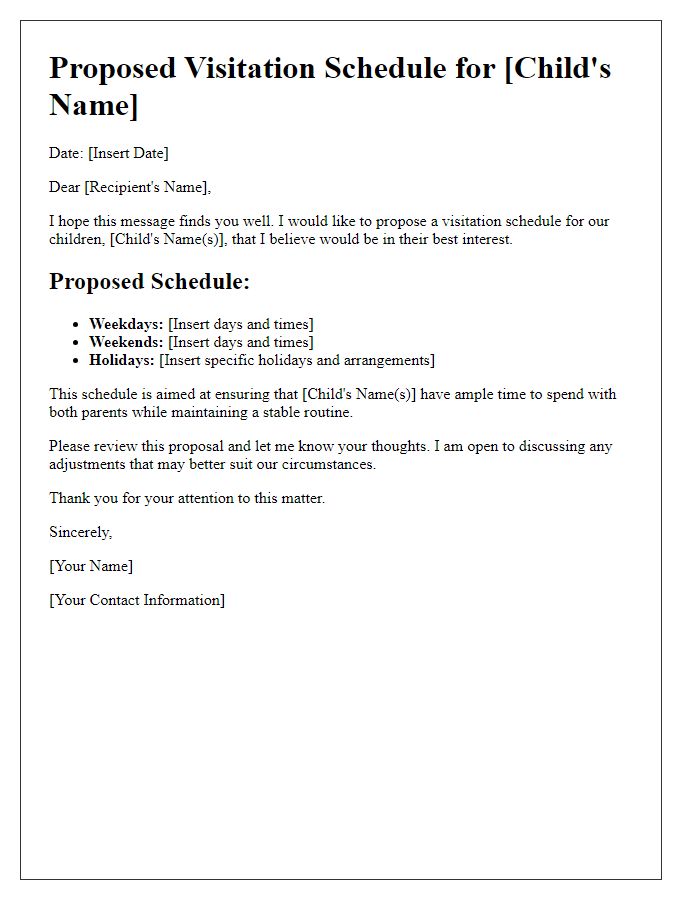
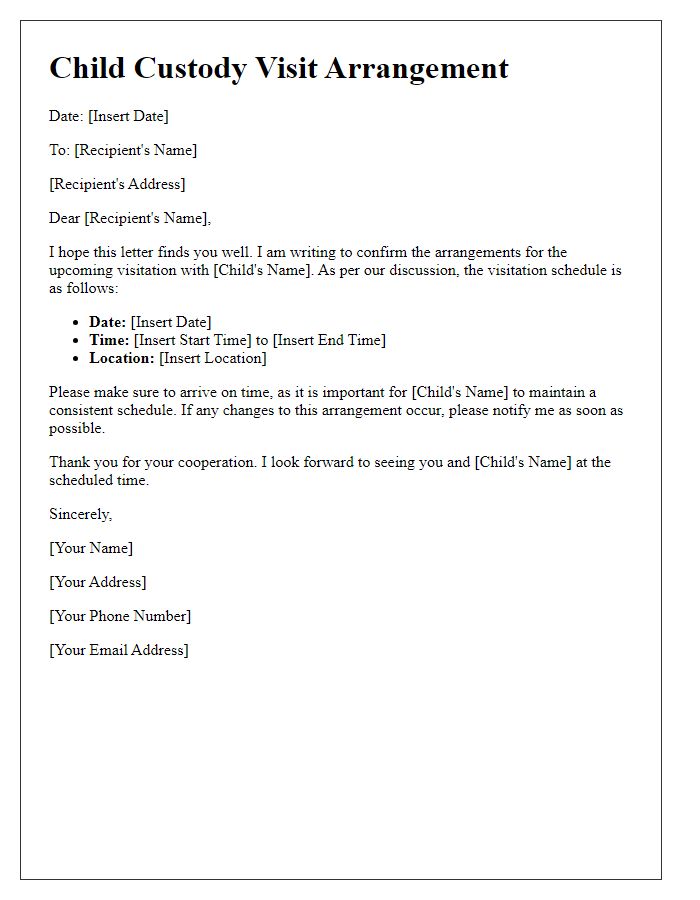
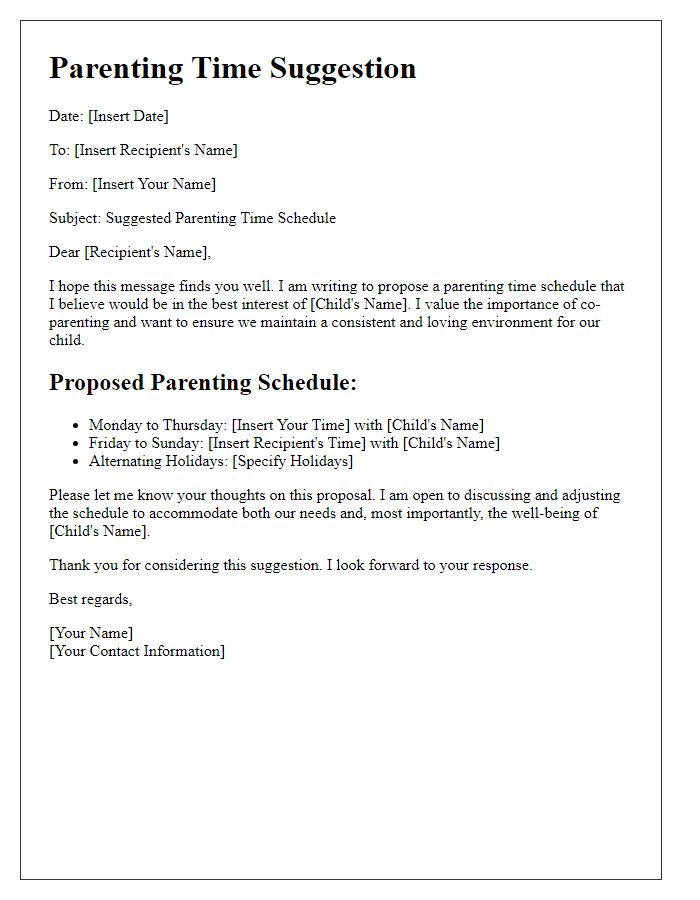
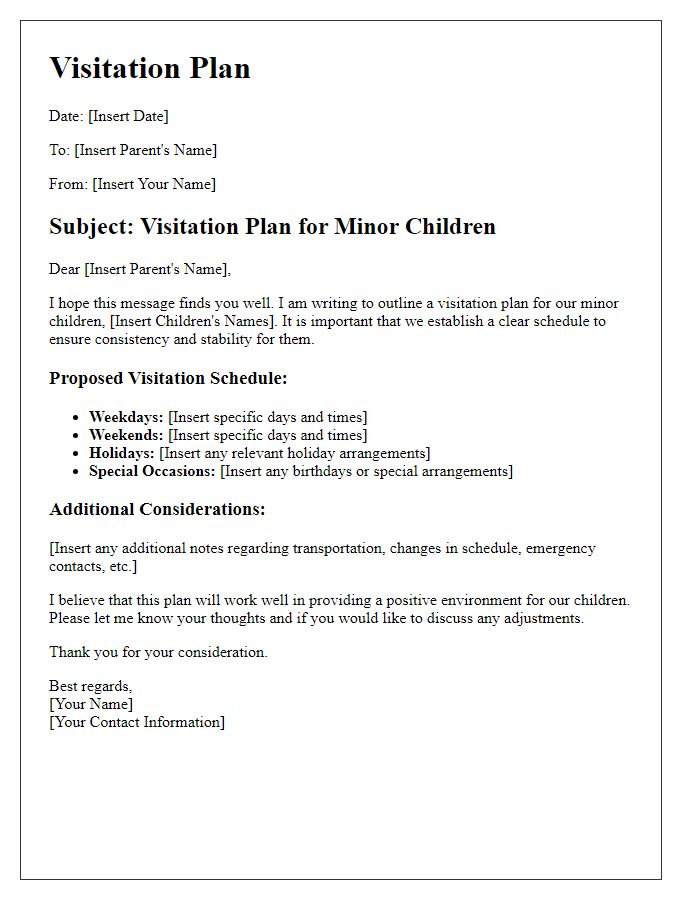
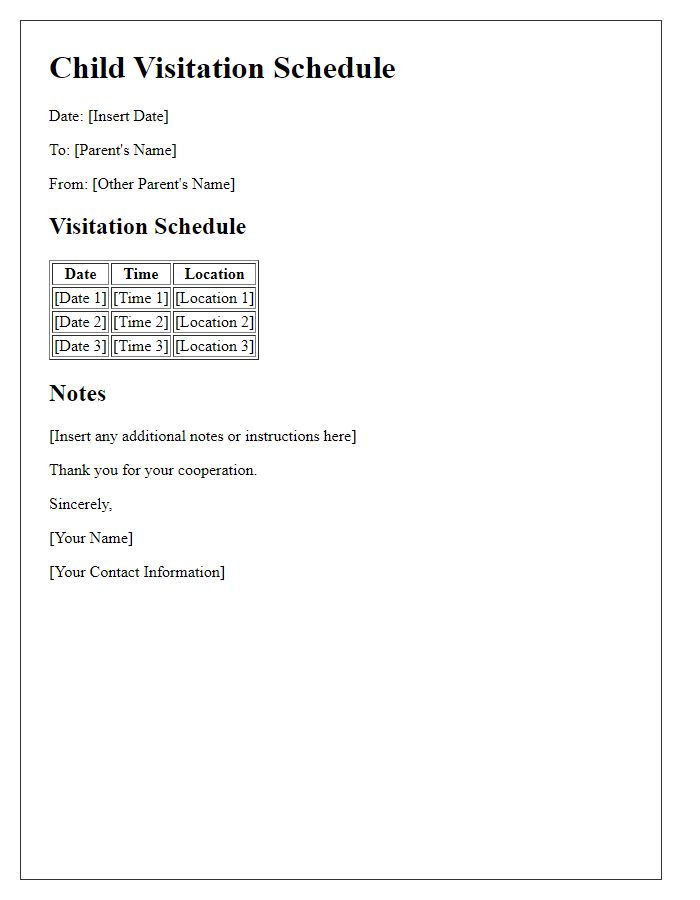
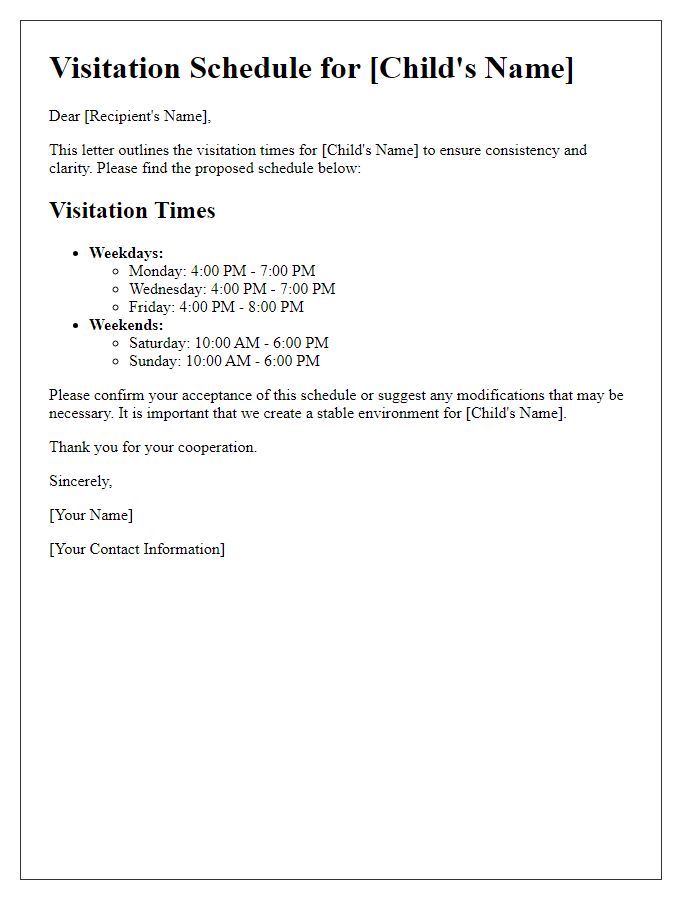
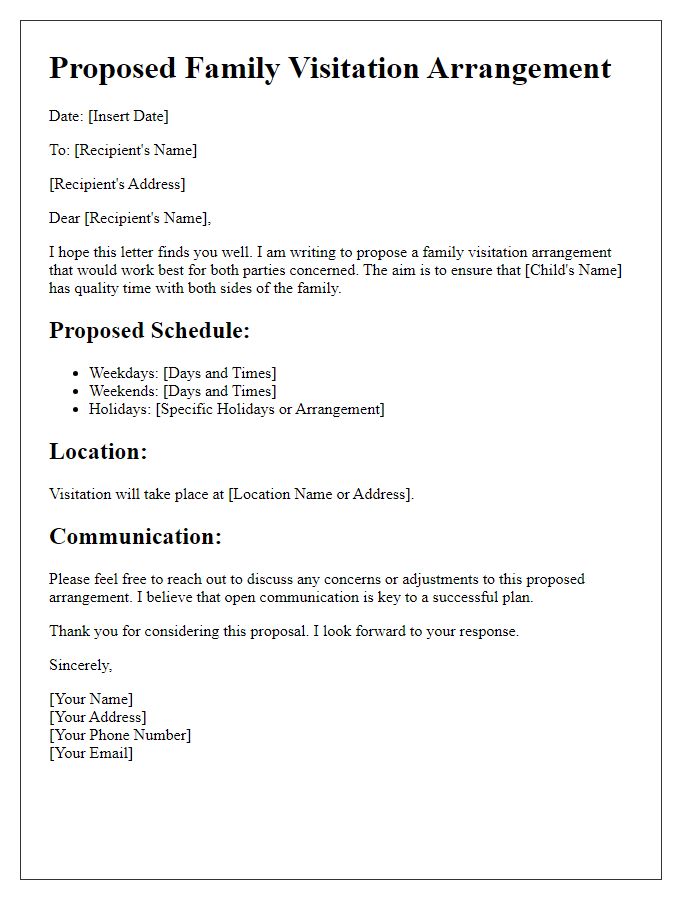
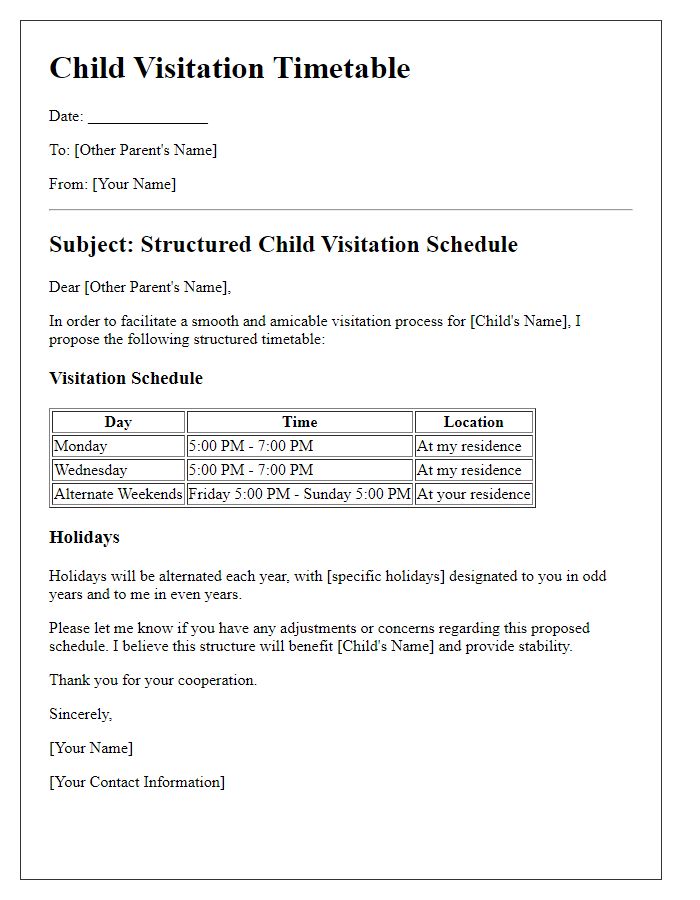
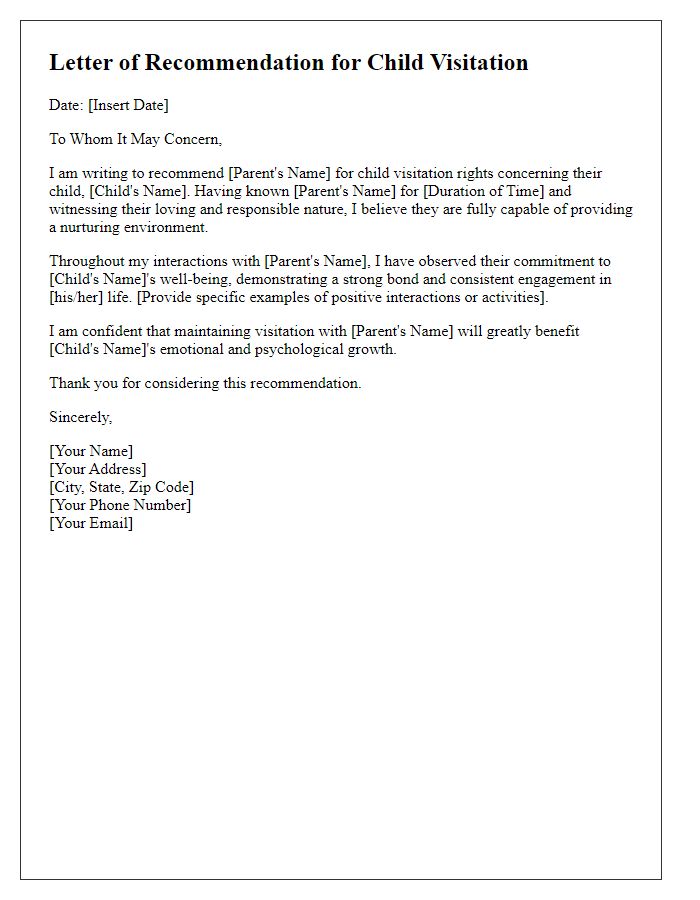
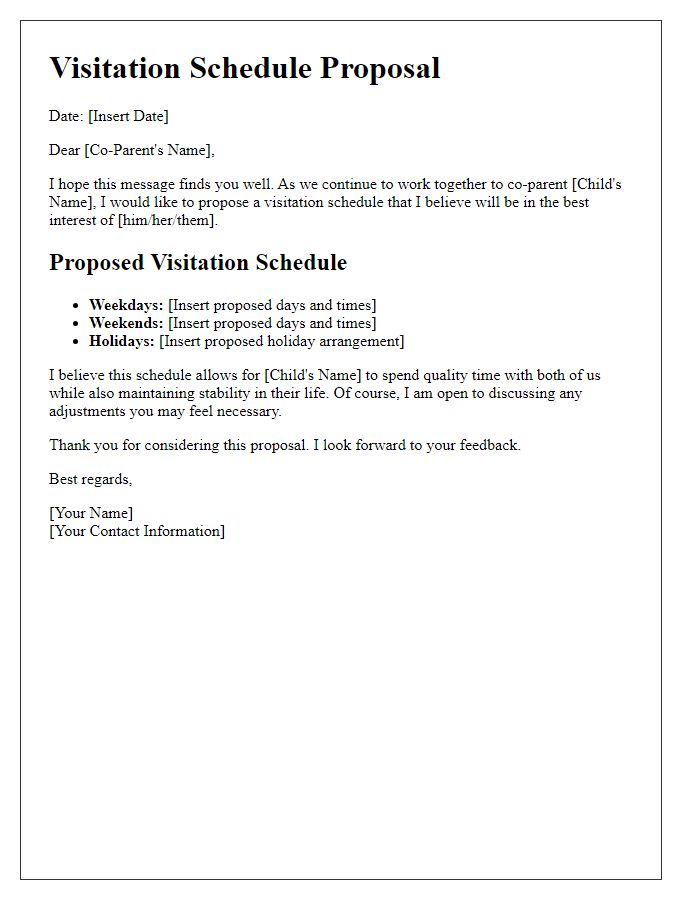


Comments